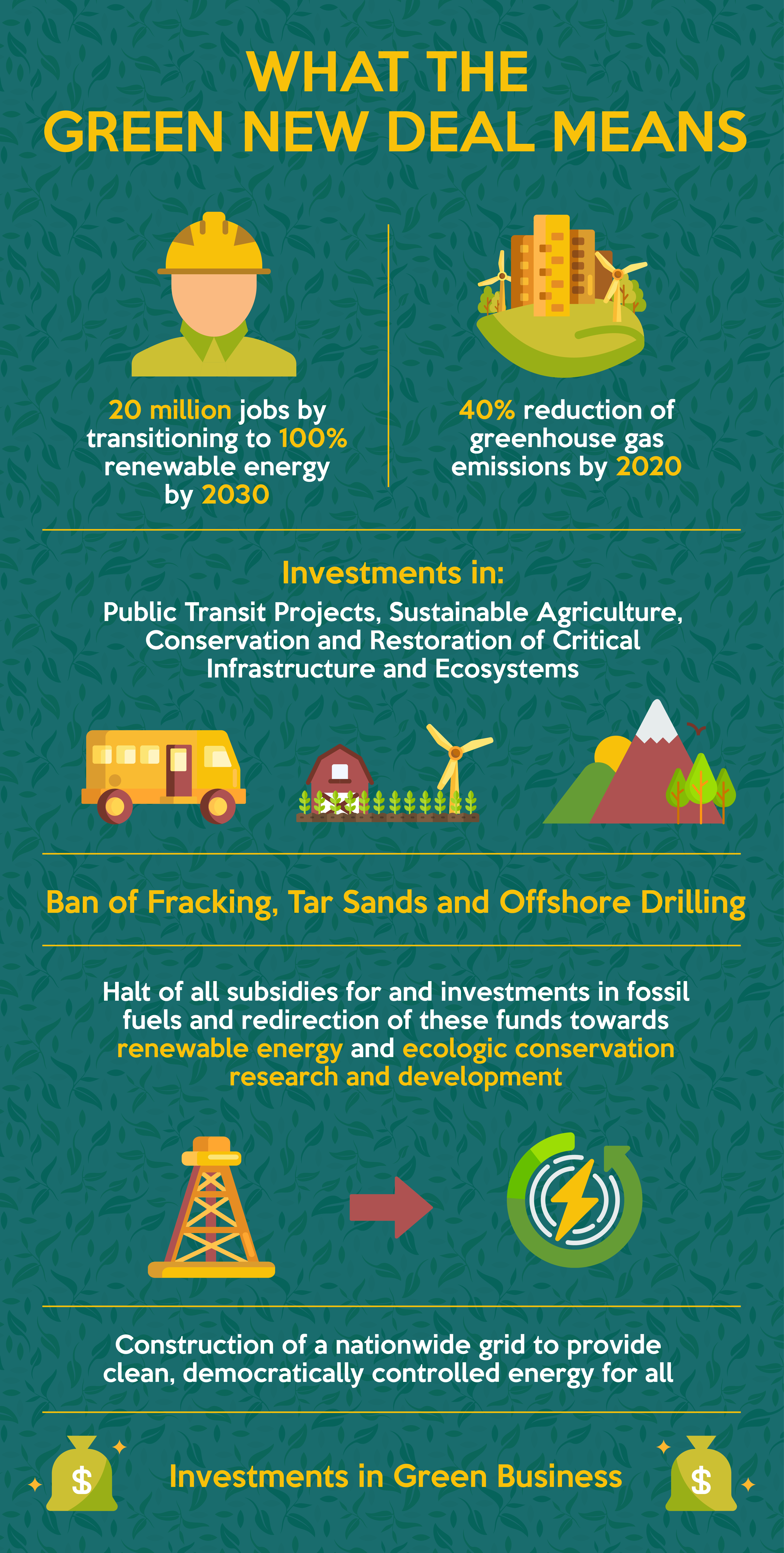Democratic leaders in the US have brought forward a congressional resolution to tackle climate change: the Green New Deal. Introduced by Representative Alexandria Ocasio-Cortez of New York and Senator Edward J. Markey of Massachusetts, the proposal calls on the federal government to wean the United States from fossil fuels, curb planet-warming greenhouse gas emissions across the economy, guarantee new high-paying jobs in clean energy industries, and combat racial and economic inequalities.

The Green New Deal is not the only sustainable initiative in the world. A green movement has also been taking place in Europe and has led to substantial commitments towards fighting climate change. Principal among those are:
- 20% reduction in CO2 emissions by 2020 and 40% by 2030
- 20% renewable energy production and increased energy efficiency by 2020 and 27% by 2030
- By 2050, the EU aims to cut its emissions substantially by 80-95%
- At least 20% of the EU’s budget for 2014 to 2020 – as much as €180 billion – is allocated to be spent on protecting the climate. This is on top of funding from individual EU countries.
Although the Green New Deal is nonbinding, meaning that if it were approved it would not become law, it is a signal of ever-growing support for sustainable solutions within the American government. It is not only about the millions of jobs that would be created in order to build and maintain the infrastructure necessary for a sustainable transition, but also about lowering the costs of extreme weather events which have recently pounded the US economy. According to the National Oceanic and Atmospheric Administration (NOAA), from 1980 to 2018, the US has sustained 241 weather and climate disasters where overall damages and costs reached or exceeded US$ 1 billion (including CPI adjustment to 2018). The total cost of these 241 events exceeds US$ 1.6 trillion.
Climate change, which is expected to cause more extreme weather events, is a direct result of the tremendous pressure that we as human beings have placed on our planet. Until recently, a change from traditional business models was something most companies, let alone governments, would not have considered. For years governments have subsidized the rich agribusiness corporations and the oil, mining, nuclear, coal and timber giants at the expense of small farmers, small business and the environment. The Green New Deal could signal the start of a government initiative that might shift funds towards green businesses that make our communities healthier and sustainable. Democratic leadership in the US will certainly enact many of these proposals, which will consequently drive sustainable initiatives and businesses, largely benefitting companies like Primal.
At Primal, we believe that the future of humanity lies in creating a symbiosis between civilizations and the environment, establishing business models that guarantee returns while also protecting and nurturing the environment. Having placed ourselves ahead of the curve, with the world’s largest commercial neem plantation, operated through the use of 100% sustainable and regenerative techniques, we believe neem will play a key role in building the sustainable industries of the future. Alongside our agricultural project, we have also launched a personal care brand, ViTA, which uses the world’s first and only 100% recycled Oceanbound plastic bottles, making sustainable packaging a reality.
Around the world, governments are aiming for the same end – a “triple-bottom line” of economic, social, and environmental objectives, with new legislations that will force corporations to adapt to sustainable business models. Having built our business model around sustainable strategies since inception, our company is well positioned to succeed in this changing environment and guarantee safe returns for our clients. Learn more about how you can become a part of a greener future for our planet by clicking here.